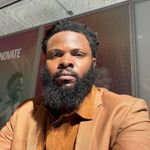Building Teacher Capacity in Computer Science Education

Building Teacher Capacity in Computer Science Education
A new study shows how a “near-peer” approach that includes college students serving as co-teachers can be effective

Doctoral student Cliff Freeman, who is also the director of STEM Programs at the Young People’s Project (YPP), and Eli Tucker-Raymond, a research associate professor at BU Wheelock, are working to build math teachers’ capacity for teaching computer science. In collaboration with Freeman’s colleagues at YPP, they developed a three-year initiative to integrate computer science and mathematics curriculum in Boston Public Schools.
“The big idea in this project asked how we train adult teachers to understand the ways in which young people organize themselves to teach one another STEM content,” said Freeman.

As part of the project, called “Building Capacity in Computer Science Education and Student Near Peer Classroom Mentorship,” college students served as co-teachers in math classrooms. The project was based on a model developed by YPP, which trains high-school and college students to teach younger students math concepts. Also involved in the partnership were Boston Public Schools, Bootstrap (a company that crafts computer science modules for classrooms), and the Earl Center for Learning & Innovation at BU Wheelock.
The project tested a new research framework, based in the work of The Algebra Project, called the Model of Distributed Excellence, which is responsive to the needs of students from racial/ethnic groups that are underrepresented in computer science. They set out to understand how near-peer mentors (in this case, “near-peer” refers to the closer-in-age college students working with high school students) offer important value when co-teaching with adult classroom teachers.
Tucker-Raymond and Freeman recently published the study “Near Peer Pedagogies for Culturally Sustaining Computer Science and Mathematics,” which evaluates the impacts of this approach. “The idea for this project was inspired by the popular African proverb, ‘It takes a village to raise a child,’” says Freeman. “Our goal was to illustrate how this proverb manifests within our work.”
Freeman went on to explain the implications of this study. “The inclusion of near-peer mentors as instructors offers unique contributions and significantly enriches the implementation of the [original] Model of Excellence in ways that the adult teacher may not be able to do alone,” he says.
Looking ahead, Freeman plans to disseminate the project’s outcomes widely among teachers. He is developing a facilitator guide to create scalable products for classroom integration at no cost.
Reflecting on the project, Tucker-Raymond emphasized that the true credit belongs to the college students and teachers involved. “One thing Cliff always reminds me of is that it’s not really our work,” he says. “It’s the work of the people, in this case, the college students and the teachers, that really counts.”

Comments & Discussion
Boston University moderates comments to facilitate an informed, substantive, civil conversation. Abusive, profane, self-promotional, misleading, incoherent or off-topic comments will be rejected. Moderators are staffed during regular business hours (EST) and can only accept comments written in English. Statistics or facts must include a citation or a link to the citation.